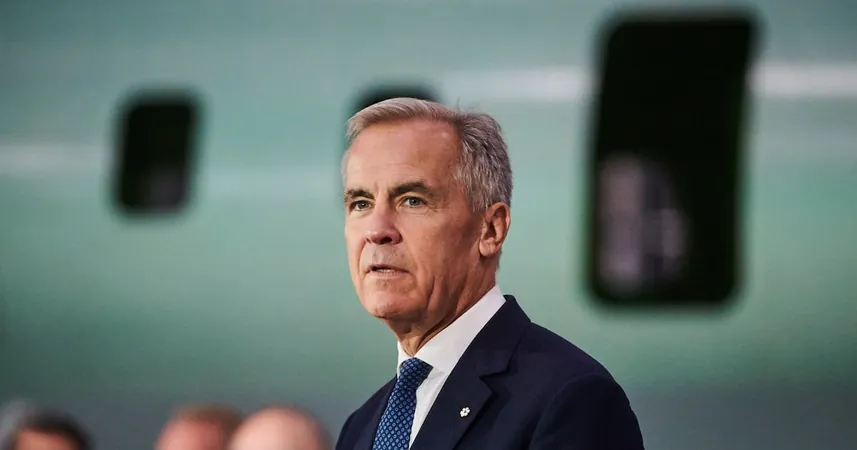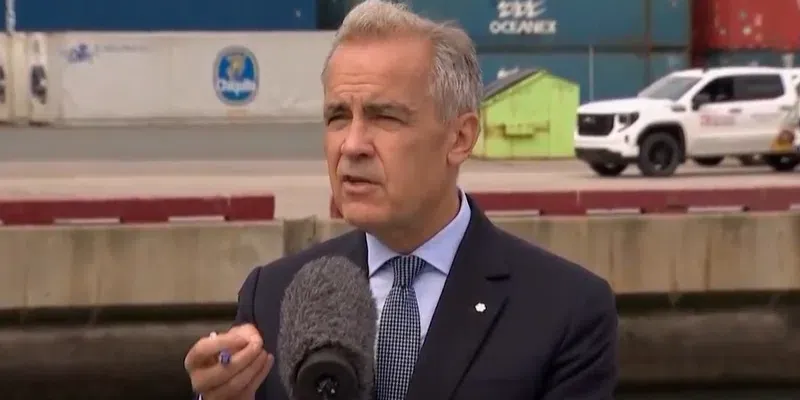
Mark Carney's Budget: What It Means for Canada's Sovereignty and Economy!
2025-09-10
Author: Emma
Canada's Budget Shift: A Cost to Sovereignty?
Prepare for a groundbreaking budget this fall, as Prime Minister Mark Carney gears up to unveil a financial blueprint that pivots dramatically from traditional government spending towards bolstering defense and infrastructure. Experts warn that Canadians deserve transparency as they face the implications of this budget shift.
After skipping the usual spring budget, Ottawa is set to release its annual budget, with anticipation building around the measures that Carney has hinted at during his brief spring session.
What’s on the Table?
Expect key announcements including a one-percentage point cut in income taxes and significant military investments to meet Canada’s commitments to NATO—steps that signal a major shift in fiscal policy.
Moreover, the government's latest legislation, Bill C-5, aims to streamline project approvals, citing the need to mend a deteriorating relationship with the U.S. and mitigate the economic impact of American tariffs.
The Economic Impact of the Trade War
According to Sahir Khan from the Institute of Fiscal Studies and Democracy, this budget will reveal the true toll of the trade war on Canada’s economy, as Carney faces the need to justify the costs associated with building a more independent economic framework.
‘There's a cost to sovereignty,’ Khan remarks, emphasizing that achieving economic independence from the U.S. will not come without significant financial sacrifices.
Deficit Expectations Raise Eyebrows
Analysts predict that Canada’s federal deficit could escalate dramatically, from an estimated $42.2 billion for 2025-26 to potentially exceeding $70 billion this year alone, fueled by the government’s ambitious spending plans.
With additional investments outlined in the Liberals’ spring election platform, the deficit is expected to deepen significantly, despite initial hopes for tariff revenues from countermeasures against the U.S.
A Bold Strategy for the Future?
Carney's financial vision merges austerity with growth, promising to balance operational spending while pushing for hefty investments in crucial sectors. Critics, however, question whether this dual approach will be robust enough to steer Canada toward fiscal sustainability.
The Fine Line Between Spending and Investment
Challenging the traditional definitions, Carney's plan suggests a division between capital and operational expenditures, a move some fiscal experts find ambiguous. Alexandre Laurin of C.D. Howe Institute warns that distinguishing productive investments may be more subjective than it appears.
Living Up to Expectations
This budget will mark a significant milestone for Carney and Finance Minister François-Philippe Champagne. Given Carney’s background in finance, there’s an expectation of rigor and transparency in budgetary practices.
As Canada braces for what may herald a new fiscal era, experts urge the government to prioritize responsible spending while investors and ordinary Canadians alike await clarity on the financial roadmap ahead.
Final Thoughts
With the impending budget set to redefine Canada’s fiscal landscape, observers are eager to see how the government balances the delicate dance between sovereignty and economic investment—one that could shape the nation’s future for years to come.









 Brasil (PT)
Brasil (PT)
 Canada (EN)
Canada (EN)
 Chile (ES)
Chile (ES)
 Česko (CS)
Česko (CS)
 대한민국 (KO)
대한민국 (KO)
 España (ES)
España (ES)
 France (FR)
France (FR)
 Hong Kong (EN)
Hong Kong (EN)
 Italia (IT)
Italia (IT)
 日本 (JA)
日本 (JA)
 Magyarország (HU)
Magyarország (HU)
 Norge (NO)
Norge (NO)
 Polska (PL)
Polska (PL)
 Schweiz (DE)
Schweiz (DE)
 Singapore (EN)
Singapore (EN)
 Sverige (SV)
Sverige (SV)
 Suomi (FI)
Suomi (FI)
 Türkiye (TR)
Türkiye (TR)
 الإمارات العربية المتحدة (AR)
الإمارات العربية المتحدة (AR)